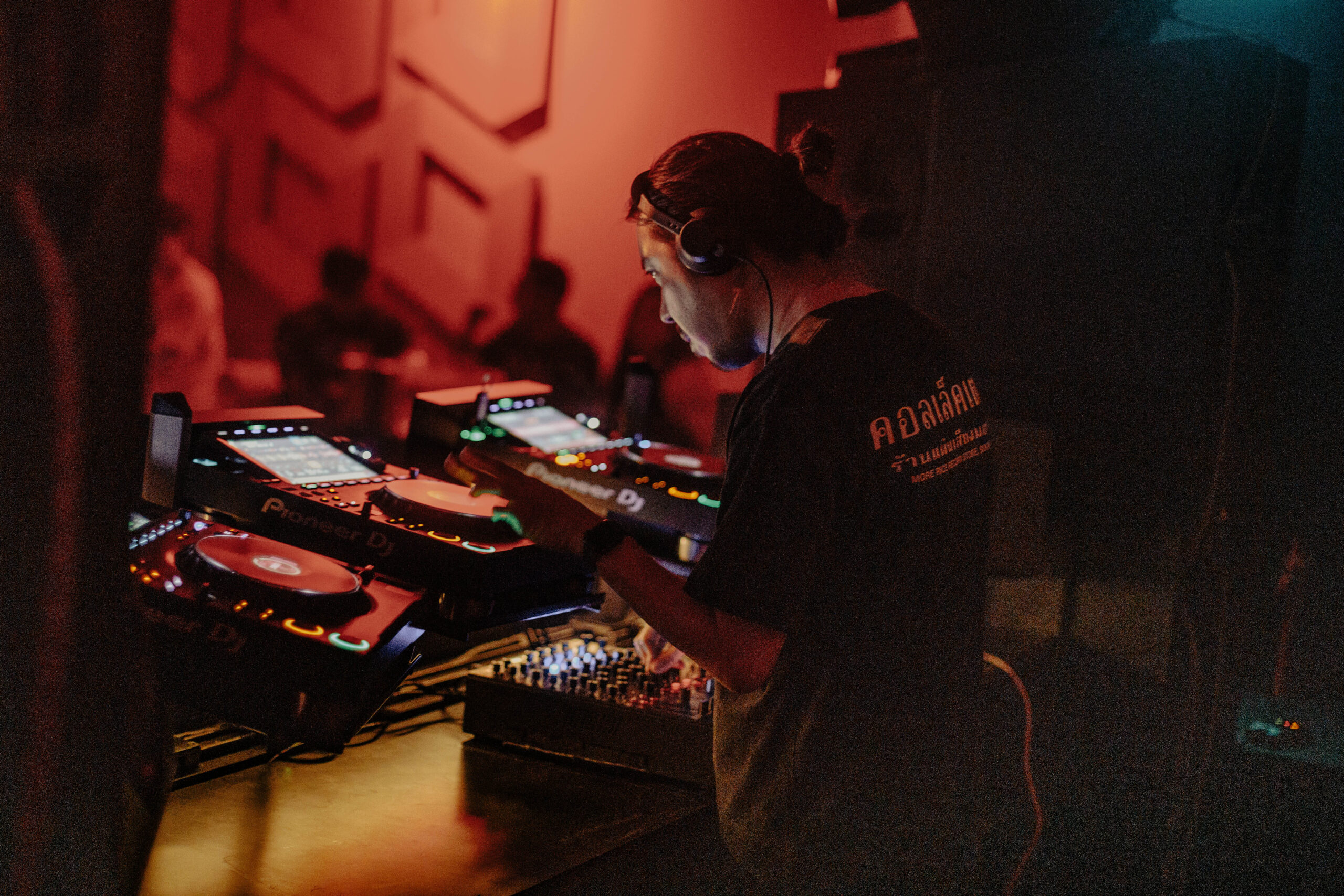I was at the Potatohead dancefloor when I met Daryl Knows. We talked about DJ gear and the dance music scene in Singapore, and that’s when we started talking about the the label he’s a part of (Darker Than Wax, which I first heard of in the early 2010s thanks to Jorge Wieneke aka similarobjects back in Manila).
We also talked about Offtrack, the bar and listening space collab between Darker Than Wax and Ice Cream Sundays, a welcome addition to post-pandemic Singapore nightlife.
Fitting then that Daryl Knows is our first feature for sealectors. Singapore is an almost guaranteed stop for all international touring DJs, and I’ve always been fascinated by how that has shaped the local dance music landscape.
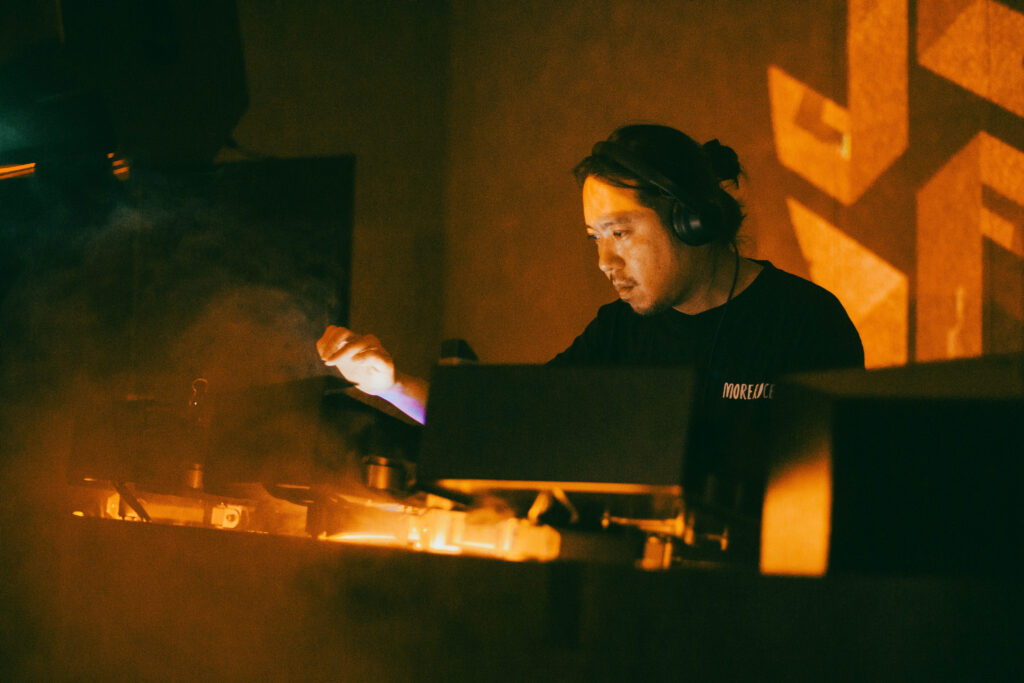
I dropped by one of his shows (chunky DSLR in hand) at RASA. It’s the bar designed by studio karhard (responsible for Berghain’s concrete and steel interiors) that has a club you enter through a secret door housing a custom sound install.
The space is dark and loud – great for Daryl Knows’ style of house music.
- What got you started DJing, and why did you choose to stick with DJing instead of doing something else?
I’ve always been into music as long as I can remember. When I was a kid, I would hog the only stereo in the house and listen to my tapes and CDs on repeat all afternoon. The transition came when I started listening to more electronic music at home after being exposed to club culture.
But having to sit through the intros and outros that House tracks usually have felt a little jarring to me, so I dabbled with DJ software as a way to bridge that gap between tracks. That grew into an obsession between improving transitions and digging for new music to experiment with.
It’s funny cause I never thought about it as me learning to DJ, it only hit me when people started asking me to play for their events. I was just having so much fun with it, I didn’t want to stop.
- Can you share what you think was a turning point for dance music in Singapore during your lifetime? How did this influence local nightlife today?
I think I’ve seen a few turning points in the Singapore landscape: the old Zouk at Jiak Kim was definitely the first. With its legendary Gary Stewart sound system and top shelf bookings, it was place to be at and the place local DJs aspired to play at.
Zouk really pushed music education in Singapore because it had four different rooms. You could be there with your friends maybe because of hip-hop, but a quick walk around the club unveiled other genres like House, Balearic, and Breaks instantly.
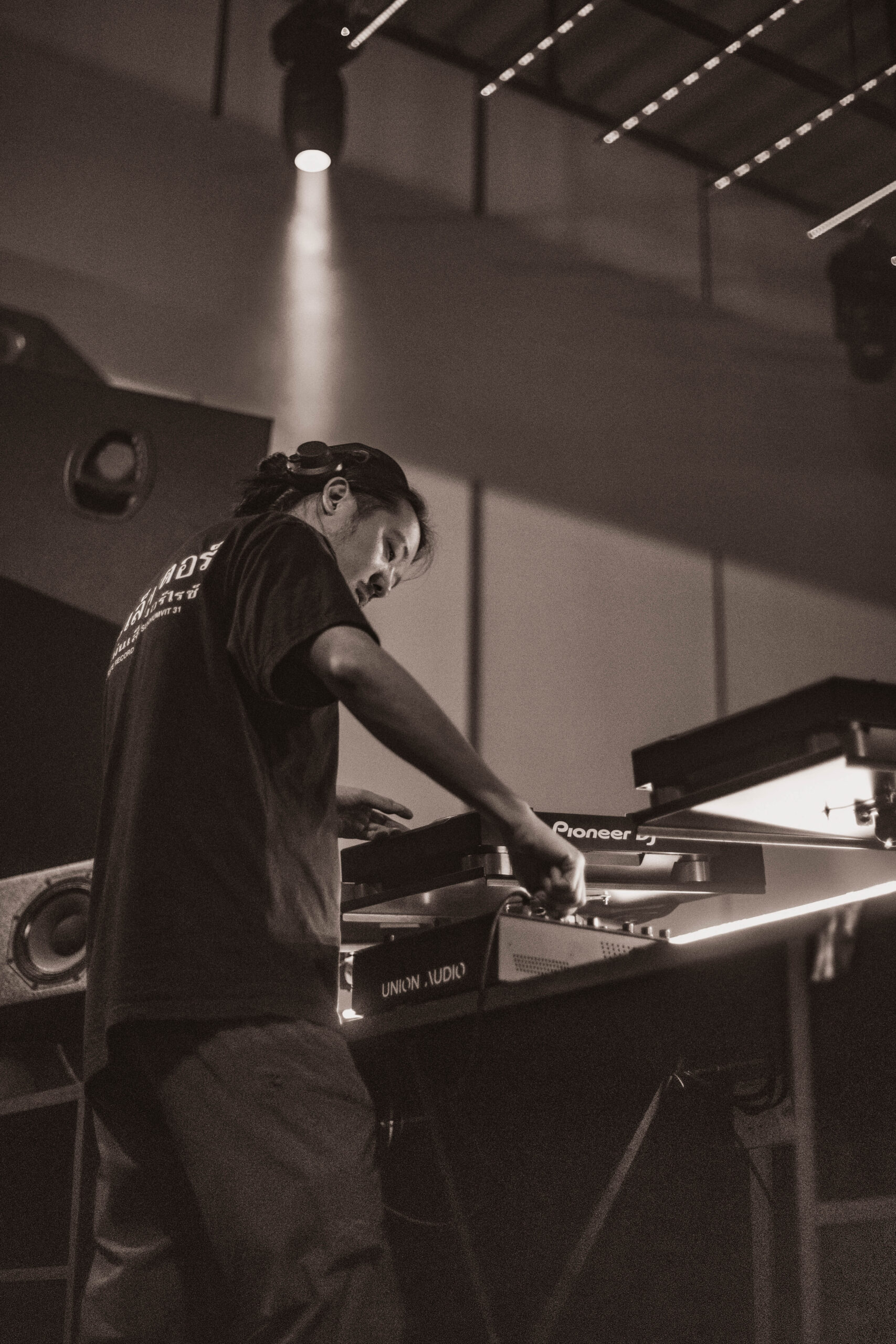
Andrew Ing, Zouk’s former marketing manager, said that the education bit was by design. Exposing the youth to more varied sounds was how they kept growing a following for generations.
Another turning point was when The Council (now Thugshop) came on the scene. The main clubbing experience in Singapore always felt a bit polished – think huge venues with professional teams behind them. They did the opposite: Headquarters, their first venue was as DIY as it gets.
At a time when all the bigger players were chasing VIPs and bottle service, Headquarters became a haven for the music heads. Everything was stripped down to its core. It was an intimate space with reasonably priced drinks, good sound and a welcoming atmosphere. A true community space.
Also, The Council popularised warehouse pop-up parties. Every couple of months, they’ll scout some obscure, unique venue and throw a rave. Warehouses by the port, ice factories, defunct river boats… they always managed to find something interesting.
Pop-up events were already a thing, but they always felt “corporate” with big name brand logos all over the place. The Council made music the focus of these events instead.
Also, dare I say, I feel Offtrack has been a turning point for current times as well. A listening bar is not a new concept by any means, but we came into the scene at a time when the perception of nightlife doesn’t revolve around club settings anymore.
People have been telling me that they used to come to Offtrack as the pre-game drinking spot before they headed out to clubs. But now, Offtrack has become the night out. Sometimes all we need is good music, drinks, food and conversations.
We need community spaces where ideas can be shared, and we need constant attendance on a weekly basis for them to survive.
- Do you think the today’s generation of Singaporeans approach clubbing and dance music differently compared to when you were their age? If so, what’s the biggest difference and do you think it’s a good or a bad thing?
Definitely! Social media was at its infancy and going out to a club was the main way new dance music was consumed back then. It was either digging at a music store or going to watch your favorite trusted DJs, waiting to hear new drops.
The main difference for me is how open minded the audience used to be. We went out wanting to be surprised. I think there’s a sense of FOMO back then as well cause if you missed out on a moment when the DJ drops a tune that threw everyone into a frenzy, you missed it.
There’s no way to relive that moment besides stories from your friends. You just had to be there.
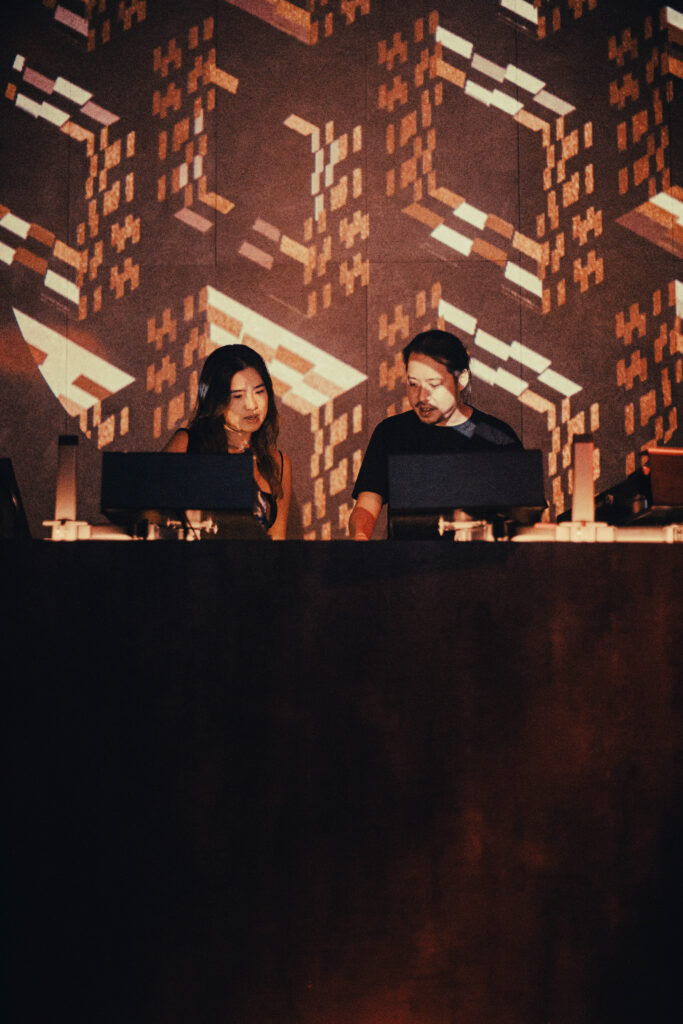
- Singapore is known globally for its regulations that have shaped the country to be the economic powerhouse that it is today. These regulations also affect the music industry and nightlife: could you share how you navigated these boundaries in your DJ career?
I do feel like Singapore has always viewed nightlife as a breeding ground for crime and vice. While it’s undeniable that some of the regulations help with safety, its quite trying having to constantly navigate what can and can not be done in the city.
Multiple venues and businesses have shuttered and we are dangerously low on spaces. It feels like we are trying to color within ever shrinking boundaries. On the bright side, DJing is now more globally recognised and Singaporean artists do travel and perform around the world as a result.
I’m confident that perception of nightlife will change, biut it will take time.
- What changes would you like to see in the DJ industry, whether in terms of creativity, business, or culture?
It feels like the general perception of DJs here is either we are those A-Listers on massive Tomorowland stages with dancers and pyrotechnics, or that we are working roadshows, constantly on the mic making announcements.
So I’d like it if bar and listening room DJs get a little bit more recognition for what we do. The music we play and the way we play it can either enhance or completely derail your night out. We are creating a mood for your guests, trust us a little.
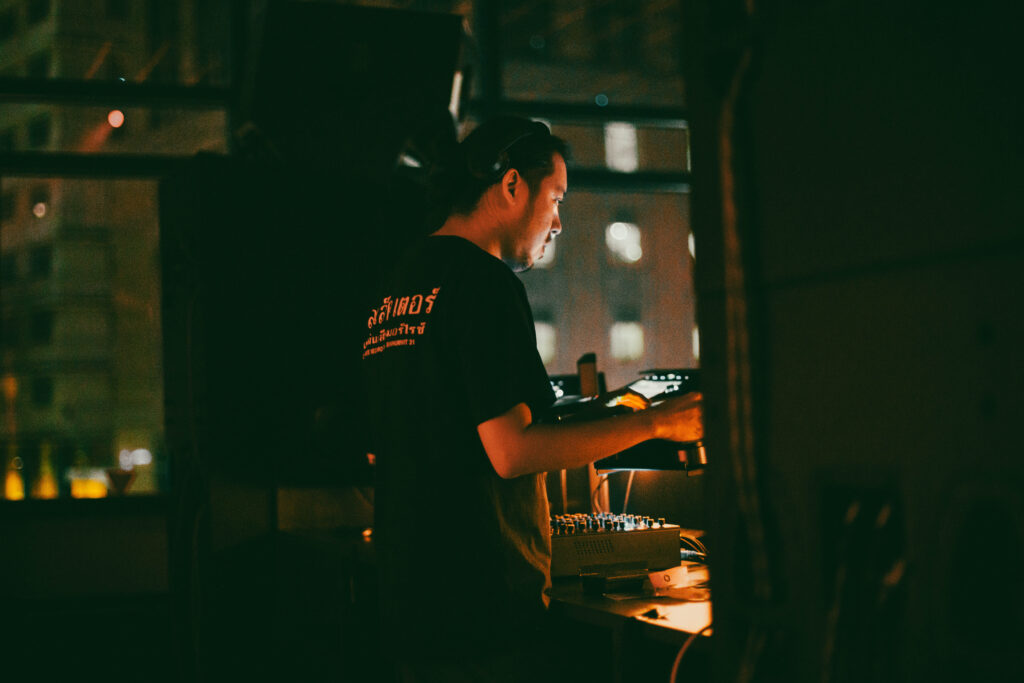
- Some might argue that DJs have become too focused on the “big moments” on the dancefloor in a post-EDM, TikTok / short-form video-centric landscape. If you agree, how do you see your DJing and curation as an act of resistance against this?
I don’t think DJs belong on huge stages, like how bands and performers are. They become the center of focus – our realm is usually the after party where these bands and artists hang out after a show.
I feel like DJs are forced to become “entertainers” to fill in the gaps and maintain attention because there isn’t much to watch when a DJ’s playing. It’s not wrong to want to be an entertainer, but for me it takes away from the music, which is the main reason I got into this in the first place. It’s more about sharing my love for music and letting people get lost in it.
- Singapore has a unique position as a cultural crossroads between East and West. How do you balance international dance music movements with elements that speak to a Singaporean audience? Or do you feel like there’s no such delineation in a multi-cultural country like this?
Singapore is a global city, and we’re constantly exposed to culture, music and trends from around the world. I do think that in the past, there was always this mentality that anything overseas is always premium and better, but these days the perspective has shifted.
Being attuned to international movements has helped us recognize that we can compete on an international level. This has given us a unique opportunity to balance and blend ideas from both sides.
We are creating a mood for your guests, trust us a little.
- Do you feel that Singapore has enough platforms for local DJs to showcase their talent? If not, what’s missing?
It’s a funny thing. There’s a lot of talented DJs in the city – on the one hand there aren’t enough venues for everyone to be constantly performing and showcasing themselves. But at the same time, there’s just too much happening on a given weekend and it’s a bit overwhelming.
What I’d say is that we are lacking the crowd to sustain everything. We need more people who just want to listen to music and have a good time.
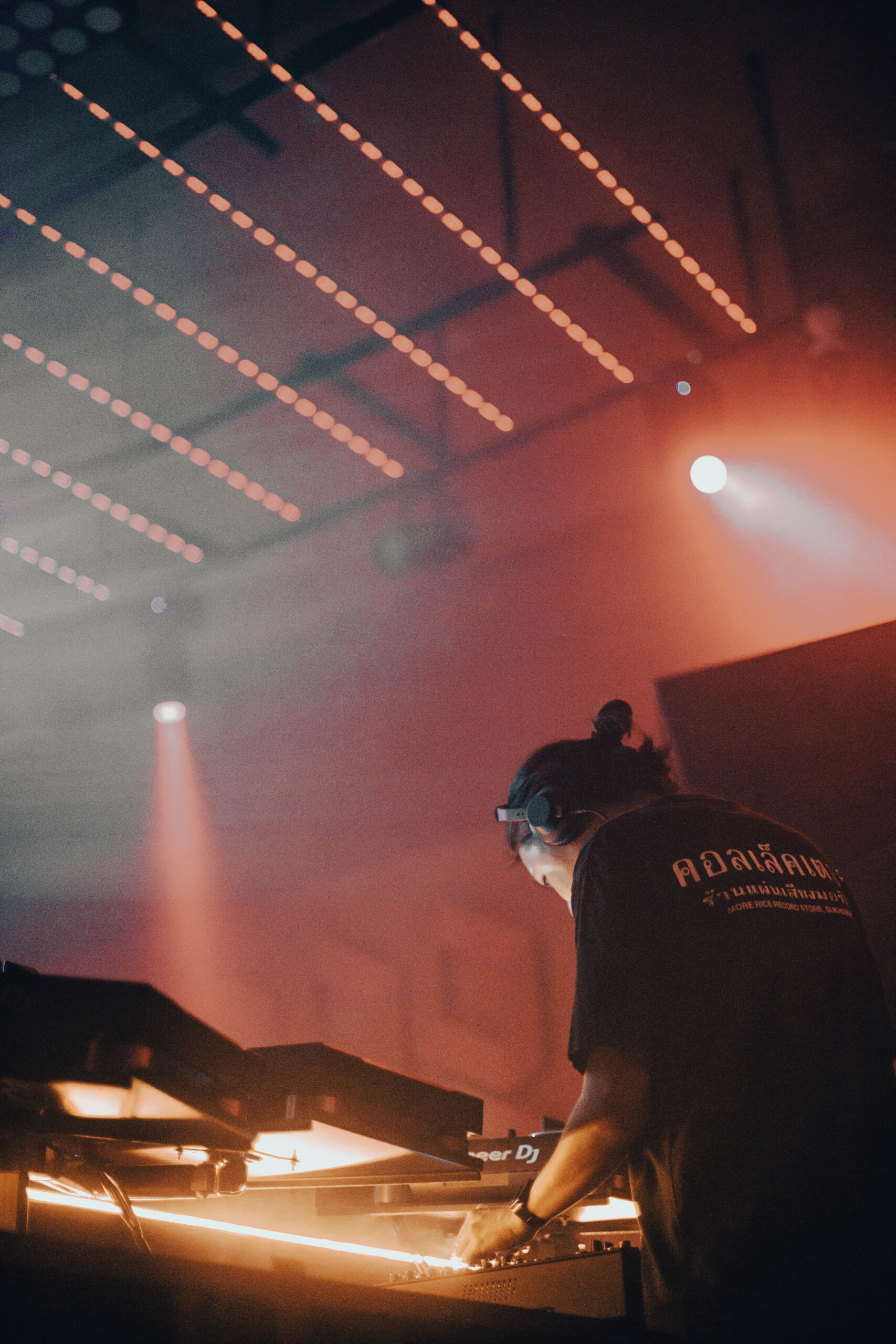
- Is the art of storytelling in a DJ set (ala Sasha and Digweed’s Northern Exposure) at risk because of shorter attention spans? Do you resist this trend, or go with it?
Storytelling has definitely gotten more difficult these days, but I still try to find a balance in my sets. I like to go deeper and take the crowd on a journey, but at the same time I’m reading the room to get a feel for what the audience is vibing with. If I’m starting to lose them, it’s a good time to switch it up and reel them back.
You can’t force the audience if they aren’t in the mental state for it, but then it’s difficult to grow as an artist if you’re constantly pandering to the crowd.
- There’s a lot of cultural diversity in Singapore. Do you think this makes it easier for underground electronic music scenes to thrive, or is it unsustainable?
I think that it makes it a challenge, especially when everyone comes with their own ideas and expectations of what the scene should be. But the most successful venues or promoters are the ones that managed to capture everyone behind a shared vision. Those are the ones that create a turning point in the local scene.
I always remember the parties where, looking across the dancefloor, you see people of all ages, races, genders, and economic status sharing a moment together. It’s a moving sight.
I feel like DJs are forced to become “entertainers” to fill in the gaps and maintain attention because there isn’t much to watch when a DJ’s playing.
It’s not wrong to want to be an entertainer, but for me it takes away from the music, which is the main reason I got into this in the first place.
- Darker Than Wax has been pushing the boundaries of global electronic music from a uniquely Singaporean lens for over a decade now. What’s in store for the next 10 years?
I’m not sure what the next 10 years will bring, but right now we are reducing the amount of releases we have per year, and focus on a select few. Sustaining a label is so different these days, so we are slowing that side of things for a bit. On the horizon, we are looking towards doing more shows and collabs in the region.
Things have changed since the pandemic. Everything feels fresh, so it’ll be nice to reach out and start making connections again.
- Pop-up events are crucial temporary spaces for Singaporean dance music collectives and their communities. Why do you think pop-up culture is so prevalent here? Would Singapore’s dance music culture be better off having more permanent spaces?
I think it works because nights out in Singapore can be expensive. And if people are choosing to go out once a month, naturally they’ll want that experience to be worth it. A pop-up event almost guarantees the experience will be unique and the vibes will be good since everyone already bought in to the event.
There’s also this weird notion that clubs here are rolling in cash, maybe due to the prevalence of excessive spending at bottle service venues, or charging extravagant amounts for watered down alcohol. So they’d rather attend these collective-run pop-up events where they can support the community.
With that said, it’s not sustainable for a scene to thrive on pop-ups alone. We need community spaces where ideas can be shared, and we need constant attendance on a weekly basis for them to survive.
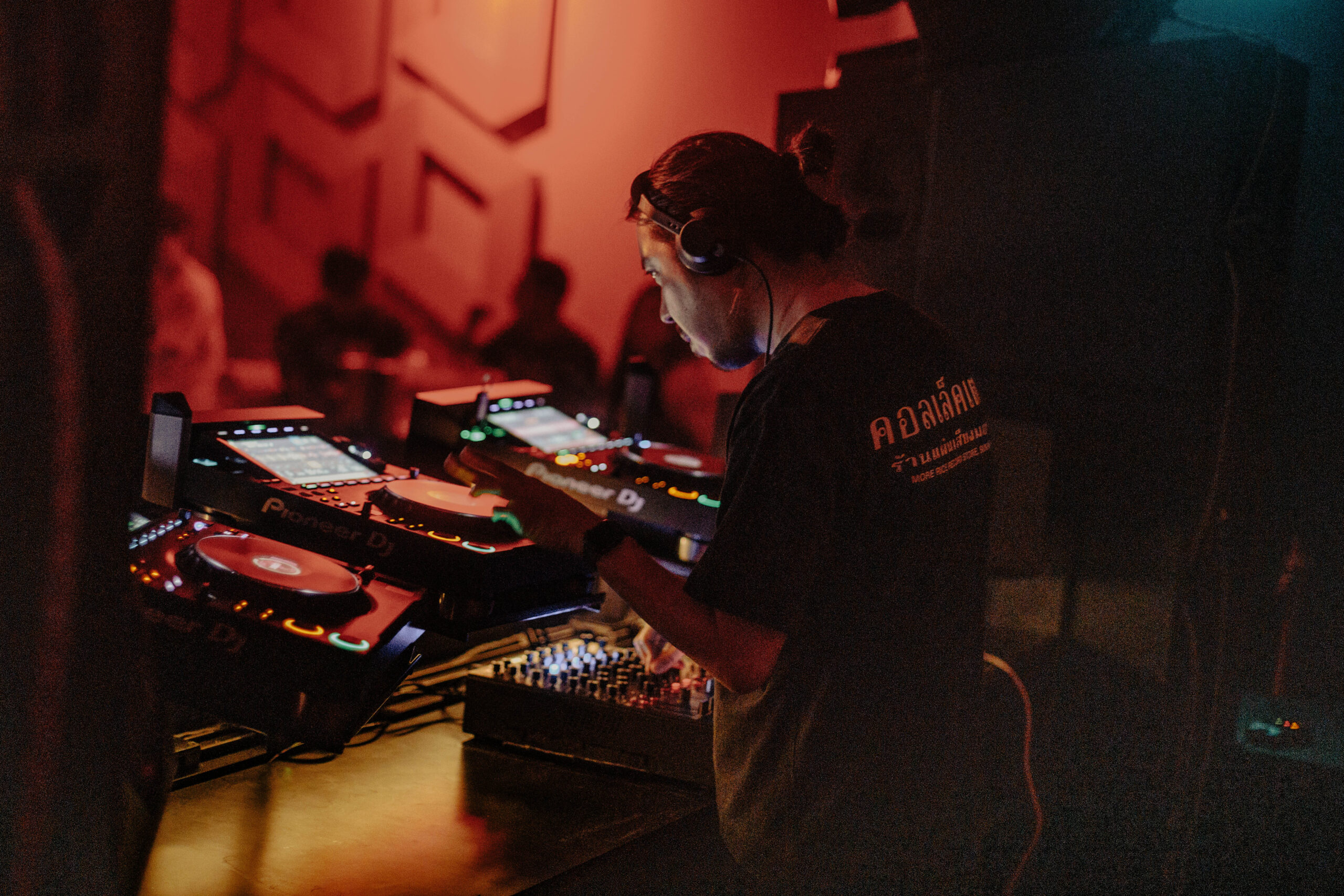
- How are new DJ talents developed in Singapore? Should there be more avenues for formal or informal instruction? Do you think this is something that the government should manage, or is it better off left in the hands of the DJ community that has built the dance scene up to this point?
Definitely in the hands of the music community. Personally, I feel like DJing is not something that can be learned in a formal setting. There are certain technical skills and techniques that can be taught for sure, but its also an art from that doesn’t have a single right answer.
I’d say go out, immerse yourself in the culture. Listen to other DJs, talk to them and pick up tips on their process. Find a mentor. Take your time, try out all sorts of genres and styles, find out what works for you. Something that works in one setting might not in a different venue, or country.
I think all that experience is difficult to replicate in a single formal environment.
- Do you think DJs in Southeast Asia get enough recognition and opportunities compared to other DJs in Asia (eg Japan)? Why or why not?
With the rise of festivals such as Wonderfruit, Equation or clubs like Klymax, there’s definitely more eyes on our region now. And post-COVID, the music community in South East Asia has been closer than ever. I’ve even been hanging out with fellow regional DJs more than some friends here in Singapore!
I think being in an emerging scene often gets us overlooked, but I see a change happening.
- What’s the biggest challenge when it comes to sustaining oneself as a DJ in Singapore?
Singapore can is a pricey city to live in, so there aren’t a lot of full-time DJs here. Almost everyone has to have a day job that supplements their lifestyle. Also, the fees have been stagnant since I first started on the bar circuit 12 years ago though I do hear it’s a common problem globally.
Keeping the drive going while juggling multiple jobs, waning attendance, changing trends… all of this stuff is always difficult. But there will always be that one gig that reminds you why you started in the first place.
